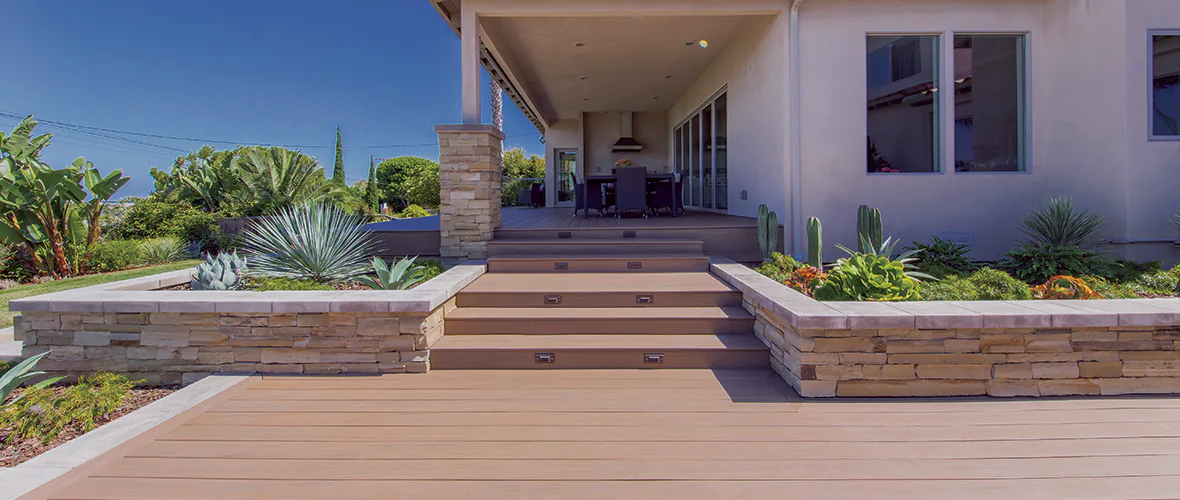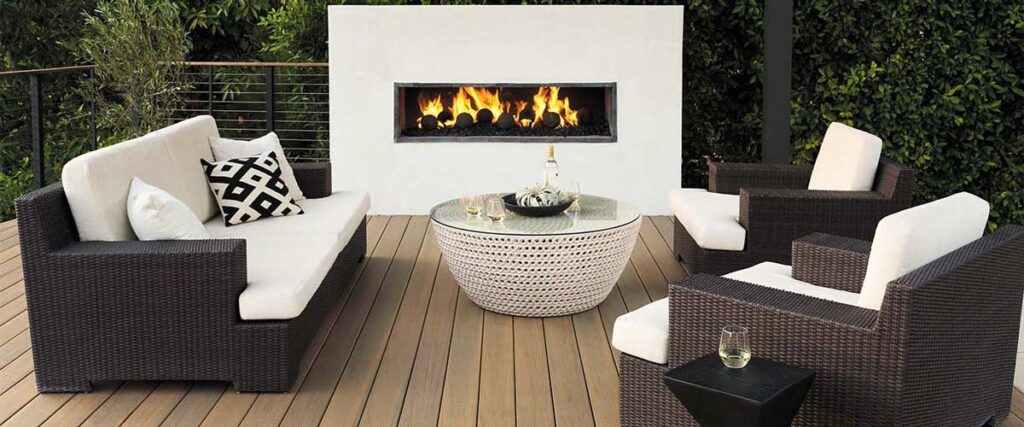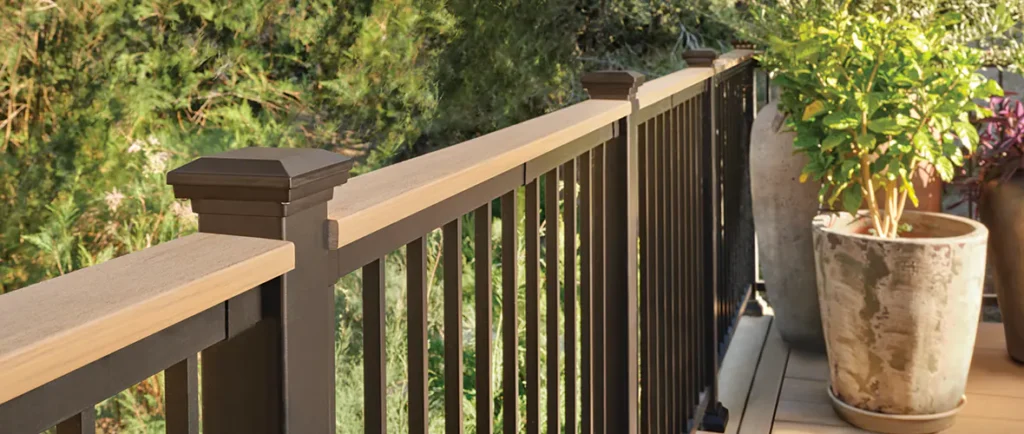Wildfires are an unfortunate reality in many parts of the United States, especially in areas where homes meet natural landscapes. For homeowners in these regions, building with fire-resistant materials is essential — not just for added safety and for peace of mind, but to meet building codes. If you’re considering adding or updating a deck, you’ve probably come across the term WUI Compliance. But what does it mean for your deck, and is it enough to help protect your home?
What is WUI Compliance?
WUI stands for Wildland-Urban Interface, which refers to areas where human development meets wildland vegetation. These regions are particularly vulnerable to wildfire risks, making fire-resistant materials a critical part of construction guidelines.
WUI Compliance ensures that certain building materials meet specific performance criteria for wildfire zones. When it comes to decking, this means the material must perform well against fire hazards, demonstrated through ignition and flame spread tests. Local building codes in fire-prone states often require WUI-compliant materials to minimize your home’s vulnerability in the event of a wildfire.
If you live in a fire-prone region, such as California or Colorado, these guidelines are not just suggestions; they’re often mandatory, meaning anything you build — from your deck to your roof shingles — needs to meet WUI standards.
Does WUI Compliance guarantee the highest level of fire resistance?
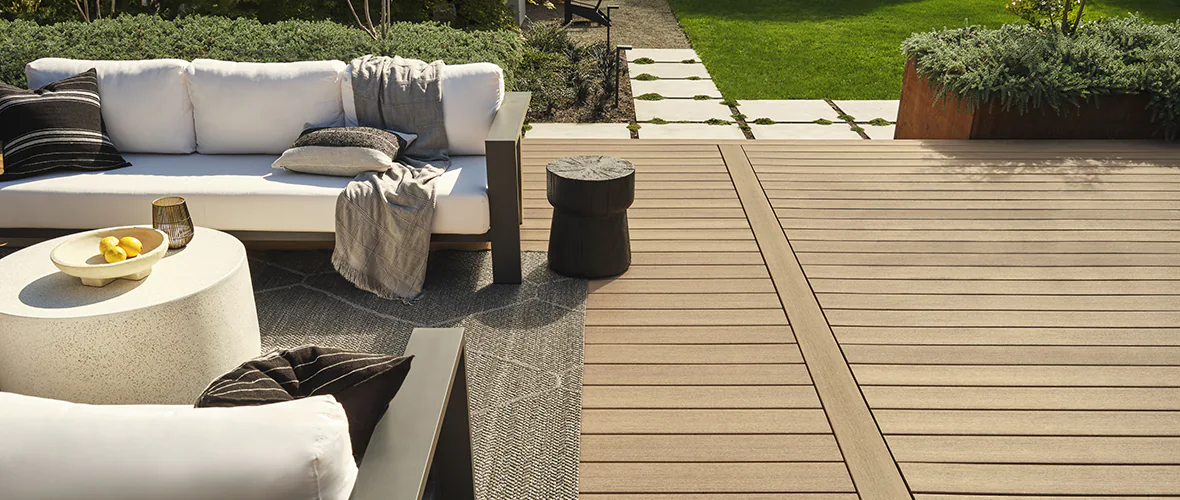
While WUI-compliant products offer protection, fire resistance exists on a spectrum — and WUI Compliance may only ensure baseline, not peak, fire resistance.
WUI compliance ensures that a decking material won’t ignite easily and won’t contribute significantly to flame spread. However, higher-rated certifications, such as Class A Flame Spread Ratings, might indicate greater resistance. WUI compliance also doesn’t address all aspects of fire safety. Ember resistance and heat retention properties, for instance, might fall outside WUI requirements but remain critical to overall fire resilience.
How WUI Compliance compares to other certifications
To better understand how WUI compliance stacks up, it helps to look at other fire safety standards:
Class A Flame Spread Rating
This designation indicates the lowest likelihood of flame spread over a surface, with Class A being the most fire-resistant classification.
Ignition Resistant Designation
Materials with this designation resist ignition from direct flame or ember exposure.
By combining WUI-compliant materials with those meeting these higher standards, you can help harden your deck and home.
How fire resistance compares across decking brands
Whether you live in a fire-prone area or simply love grilling and sitting around a fire pit, fire resistance is one more factor to consider when choosing your decking. So, let’s take a look at how the top decking brands stack up:
If maximum fire resistance is your priority, TimberTech Advanced PVC Decking from the Vintage and Landmark Collections are your best bet — meeting WUI Compliance while also having a Class A Flame Spread Rating and an Ignition Resistant designation. While all four brands provide products that meet WUI standards, the overall level of fire resistance will vary by collection. And remember that not all collections provide fire resistance, so be sure to check.
Are WUI guidelines for decking and building materials the same everywhere?
While the concept of WUI compliance is relatively uniform, the actual requirements can vary significantly depending on where you live. This variability often stems from differences in fire risk levels, local climate, and state-level building codes.
For example, some states might focus primarily on controlling plant growth around your home, while others enforce strict product testing for materials used in decks, fences, and roofs. States like California, Oregon, and Washington have some of the most stringent WUI material guidelines because these areas experience a higher frequency of wildfires.
To add an extra layer of complexity, not all counties or cities within a state necessarily follow the same rules. You may find stricter regulations in urban areas located near national forests, for instance, while areas deemed lower risk might have more relaxed standards.
In short, you should always check with your local building code department or local Fire Marshal for the most current guidance for your area.
California WUI guidelines
If you’re in California, understanding its WUI guidelines is critical. With its history of devastating wildfires, the state has some of the most robust WUI compliance rules.
For example:
Materials testing: California requires that decking materials pass testing under the State Fire Marshal’s regulations. This includes flame spread resistance and the ability to withstand ember exposure.
Defensible space requirements: Homeowners are also expected to maintain a defensible space around structures, limiting vegetation and combustible materials near the building.
Evolving guidelines: California constantly updates its codes as wildfire science evolves, meaning homeowners need to stay current on the latest rules.
What sets California apart is the depth of its oversight. A decking material approved in another state might not necessarily meet the stricter testing standards imposed in California. For example, certain wood products may not pass the required flame spread tests for use in high-risk zones.
What does this mean for your new deck? For homeowners, this variability can affect everything from material selection to insurance coverage. Before starting any new deck project, check with your local building department to make sure your chosen materials comply with WUI or other local fire safety standards.
Finding the right balance for your home
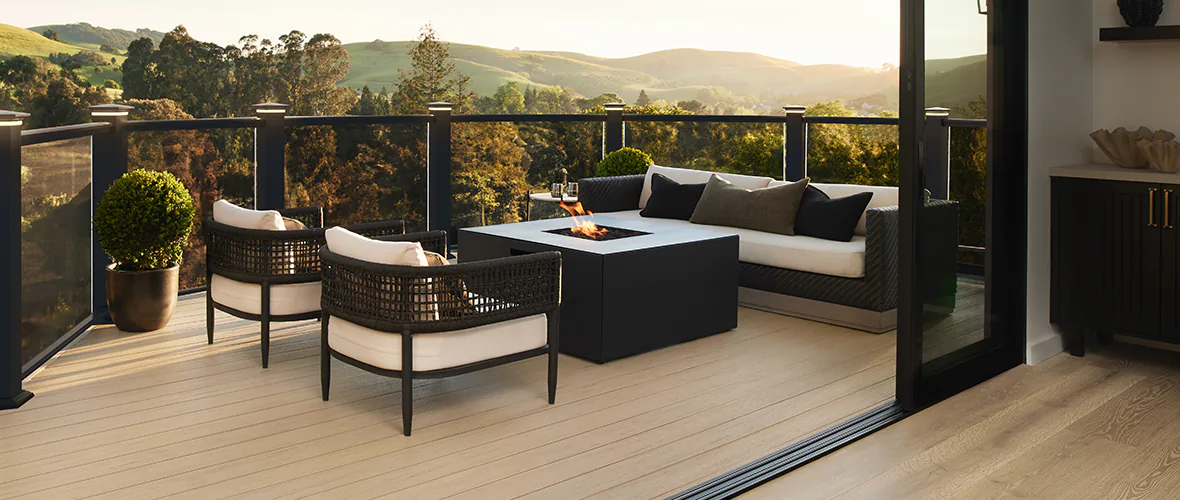
When you’re on the hunt for the perfect decking, there’s a lot to consider, like performance, appearance, and longevity. Fire resistance is just one more factor — and choosing WUI-Compliant composite decking is a smart step in the right direction.
But it’s not the full story. For homeowners in wildfire-prone areas, pairing WUI Compliance with higher fire resistance ratings like Class A Flame Spread Rating and Ignition Resistant designations can offer even greater peace of mind. And don’t overlook the role of proactive landscaping and maintenance! Clearing brush around your home and adding fire-resistant plants can reduce your risk even further.
Making smart choices like these today can help harden your home against fire so you can enjoy your deck for years to come.
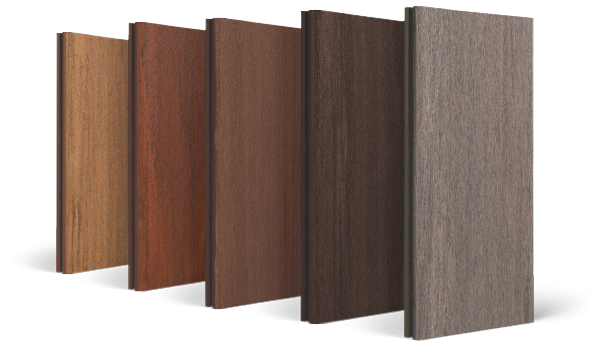
Order Free Samples
Compare colors, finishes, and materials, and see the real wood aesthetics of TimberTech Decking in your outdoor space.
